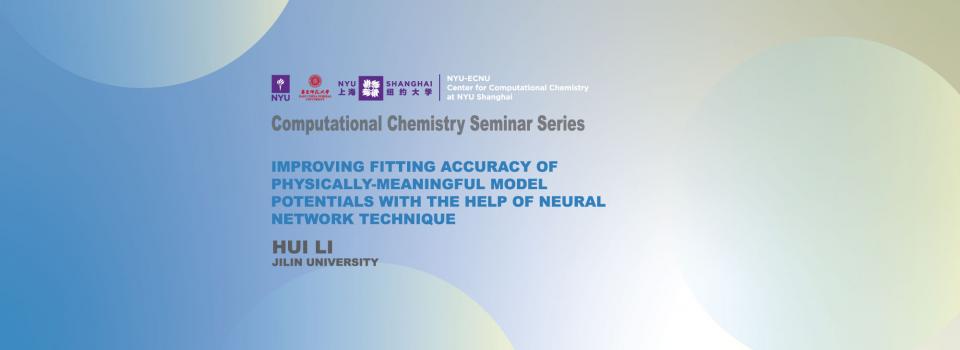
Abstract
The potential energy surface (PES) is one of the prerequisites for nearly all atomic-scale simulations, and the accuracy and efficiency of the given PES determine the accuracy and cost of calculating further physical quantities. Traditionally, constructing PES was usually based on physical potential functions or so-called model potential. These functions usually have physically realistic function forms, and thus, ensure the correct asymptotic limits in both short- and long-range. We have already developed several model potentials for intermolecular interactions and achieved success in ro-vibrational spectroscopy calculations and superfluid simulations. However, the fitting procedure of these models is not as easy as the popular neural network potential (NNP) models, especially for the high-dimensional systems, which limits the application of model potential into high-dimensional and also high-accuracy required research.
In our recent work, we improved the fitting ability of the model potential by integrating the neural network into the physical function. The new intermolecular PES model, named MLRNet, is still in the format of the multi-dimensional Morse/Long-Range (MLR) function but the fitting accuracy increase by about a magnitude of degree than those previous mdMLR model (RMSD: MLRNet 0.005cm-1 vs mdMLR 0.13 cm-1 in CO2-He system). Furthermore, the physically realistic behavior of the MLR function ensures the MLRNet has meaningful extrapolation at both short and long ranges, which solves the asymptotic extrapolation problem in common neural network potential models. Our work illustrates the benefits of the neural network model with physical constraints and provides a useful reference for the future development of more efficient and reliable potential models.
Biography
Hui Li, Tang Au-Chin Scholar Professor of Jilin University, Adjunct professor of University of Waterloo. After He received PhD at Nanjing University in 2005, he went to the University of Waterloo, where he spent 5 years as postdoc, research associate, and senior research associate with Professors. R. J. Le Roy and P.-N. Roy. In 2010, he joined Jilin University as a Full Professor. His research interests lie in potential energy surfaces, ro-vibrational spectroscopy and dynamics of small molecules, molecular clusters, doped quantum or classic solutions, and SFG spectra at interfaces. In 2016, he received the Tang Au-Chin Young Investigator Award in Theoretical Chemistry, Chinese Chemical Society.
Seminar Series by the NYU-ECNU Center for Computational Chemistry at NYU Shanghai


